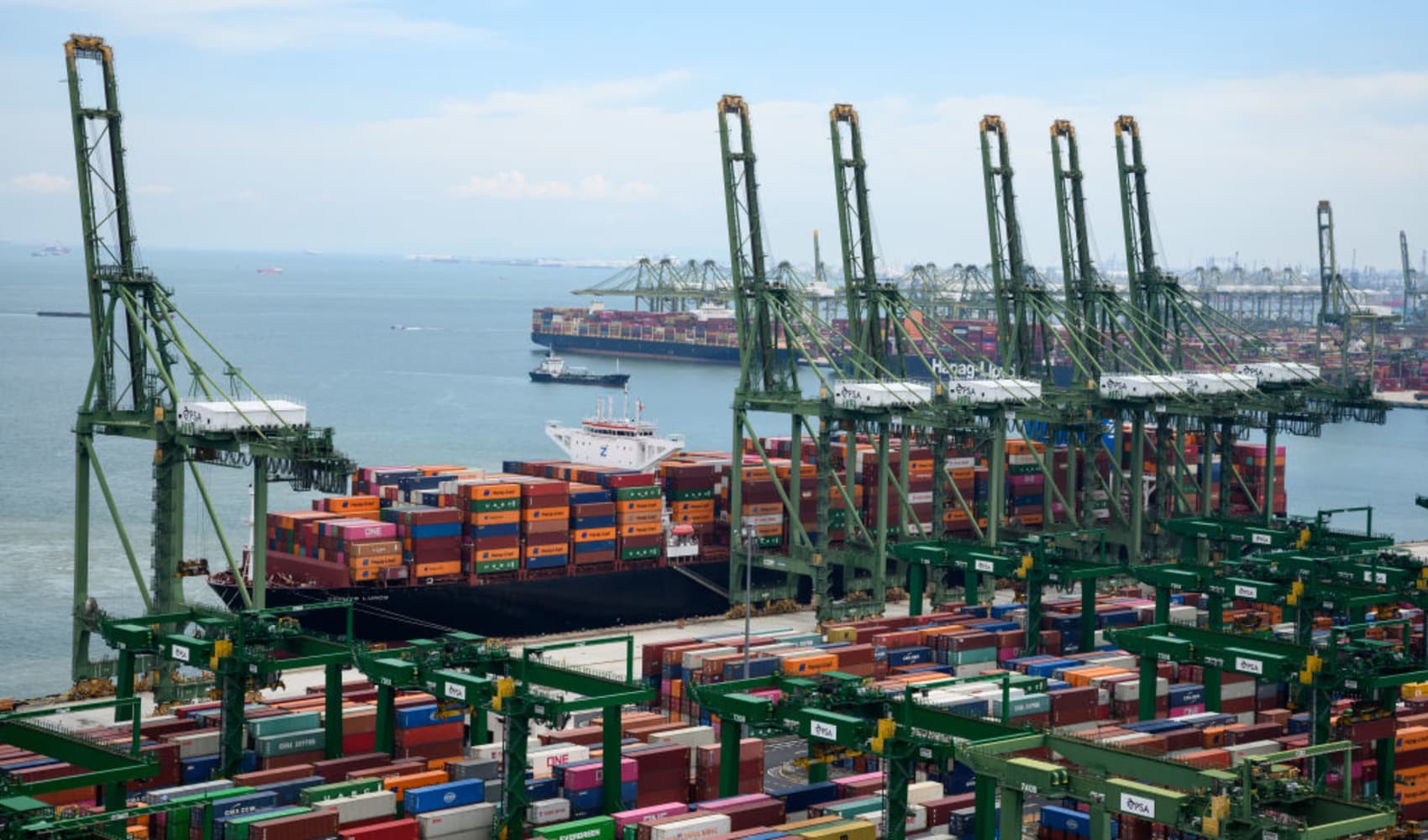
- Japan's second-quarter GDP came in at 2.9% on an annualized basis, less than the 3.2% expected by economists polled by Reuters and the advance figure of 3.1%.
- China's inflation rate grew 0.6% year-on-year, lower than the 0.7% expected from economists polled by Reuters. On a month-on-month basis, the CPI rose 0.4%, lower than the 0.5% expected.
Asia-Pacific markets fell on Monday, with Hong Kong's Hang Seng Index leading losses in the region, following the weaker-than-expected U.S. jobs report on Friday.
China's inflation rate grew 0.6% year on year, lower than the 0.7% expected from economists polled by Reuters. On a month-on-month basis, the CPI rose 0.4%, lower than the 0.5% expected.
The HSI dropped 1.77% as of the final hour of trading, while mainland China's CSI 300 fell 1.19% to 3,192.95, marking a seven-month low.
Get top local stories in Connecticut delivered to you every morning. Sign up for NBC Connecticut's News Headlines newsletter.
Early Monday, Chinese electrical appliance manufacturer Midea Group announced a listing for 492.1 million shares in Hong Kong, with the offering priced between HK$52 and HK$54.80 per share.
At the top end of that pricing range, the offering would be valued at HK$26.97 billion ($3.46 billion), which will make it the city's largest listing in more than three years.
Separately, Japan's second-quarter GDP came in at 2.9% on an annualized basis, less than the 3.2% expected by economists polled by Reuters and the advance figure of 3.1%. A softer GDP growth figure will constrain the Bank of Japan's options to raise rates.
Money Report
The Nikkei 225 closed 0.48% lower after paring losses to close at 36,215.75, while the broad-based Topix fell 0.68% to close at 2,579.73. The Japanese yen weakened 0.65% against the U.S. dollar to 143.20, coming off a nine-month low achieved on Friday.
Yen traders will watch equities closely as risk-off sentiment grows and the unwind of the yen carry trade is expected to continue, Kathy Lien, managing director of FX strategy at BK Asset Management told CNBC's "Squawk Box Asia." She also expects some periods of aggressive selling in equities this month.
South Korea's Kospi slipped 0.33% to 2,535.93 while the small cap Kosdaq was up 1.11% to 714.46.
Australia's S&P/ASX 200 closed 0.32% lower at 7,988.1.
On Friday, U.S. nonfarm payrolls rose by 142,000 missing a 161,000 gain estimated by economists polled by Dow Jones. On the other hand, the unemployment rate edged down to 4.2%, in line with expectations.
The S&P 500 notched its worst week since March 2023. The tech-heavy Nasdaq Composite recorded its worst week since March 2022.
During Friday's session, the broad index slid 1.73% while the Nasdaq slid 2.55%. The Dow Jones Industrial Average fell 1.01%.
—CNBC's Samantha Subin and Pia Singh contributed to this report.






